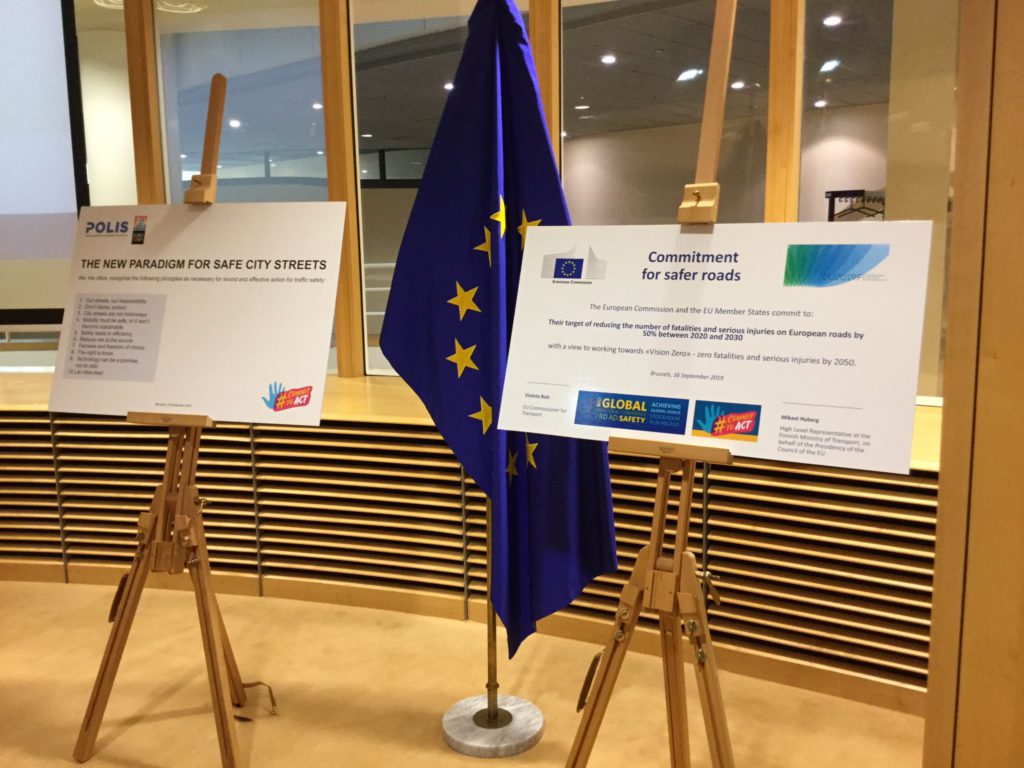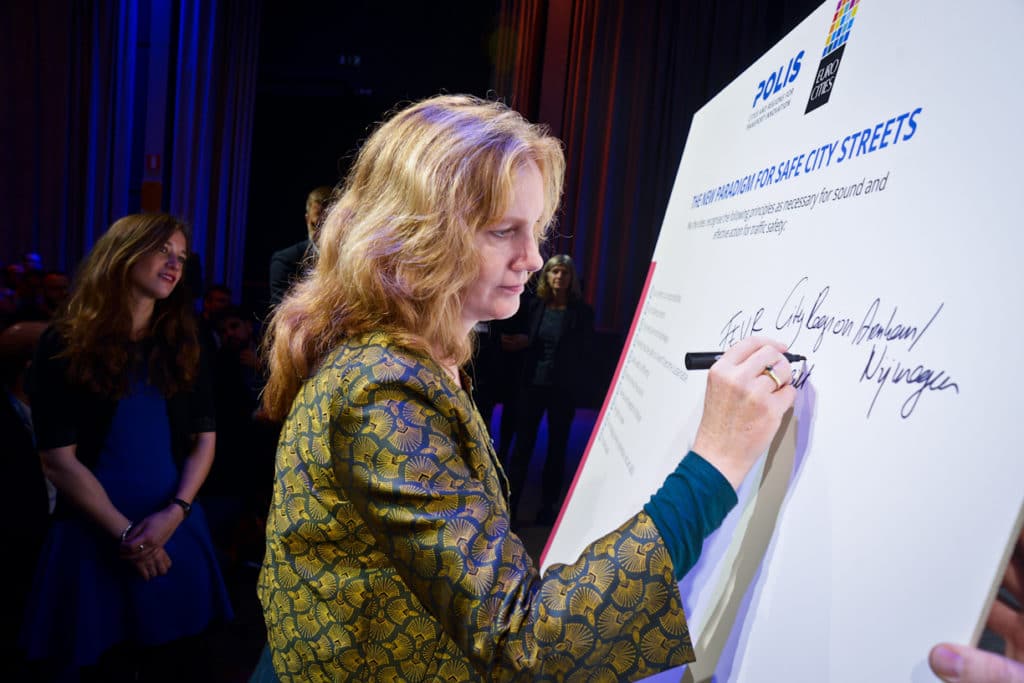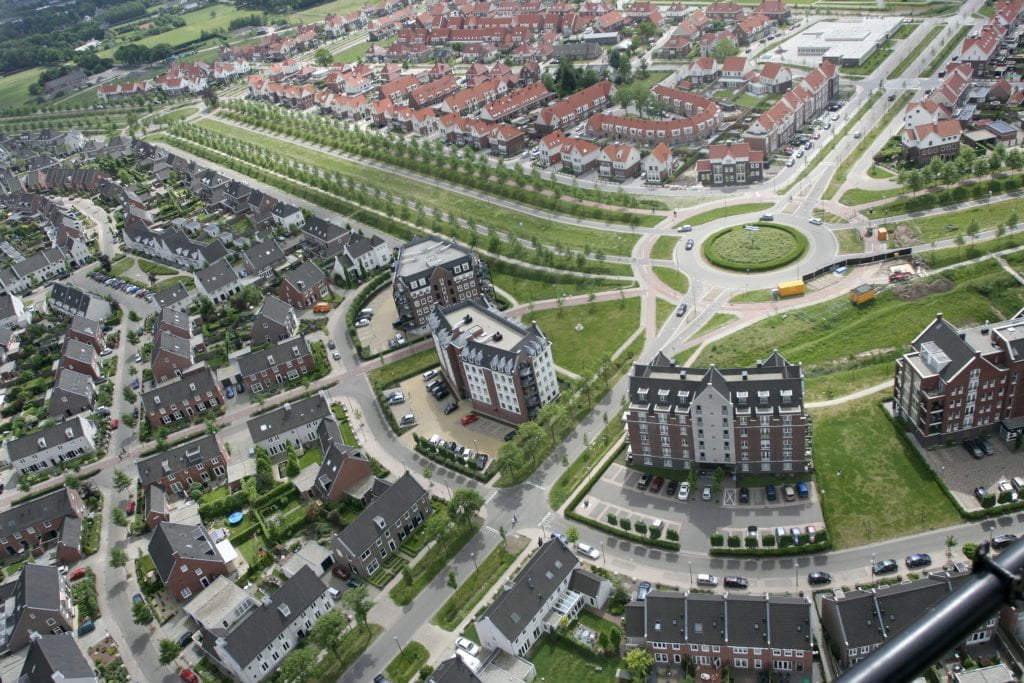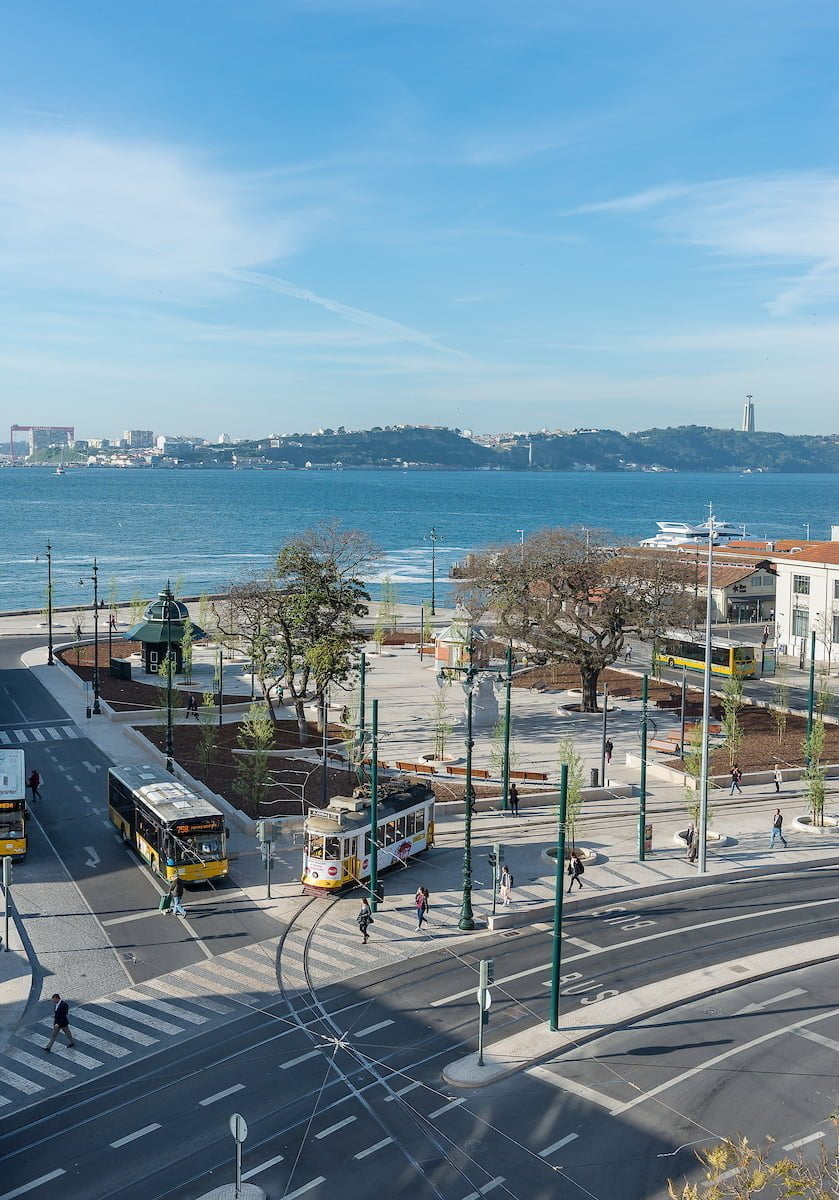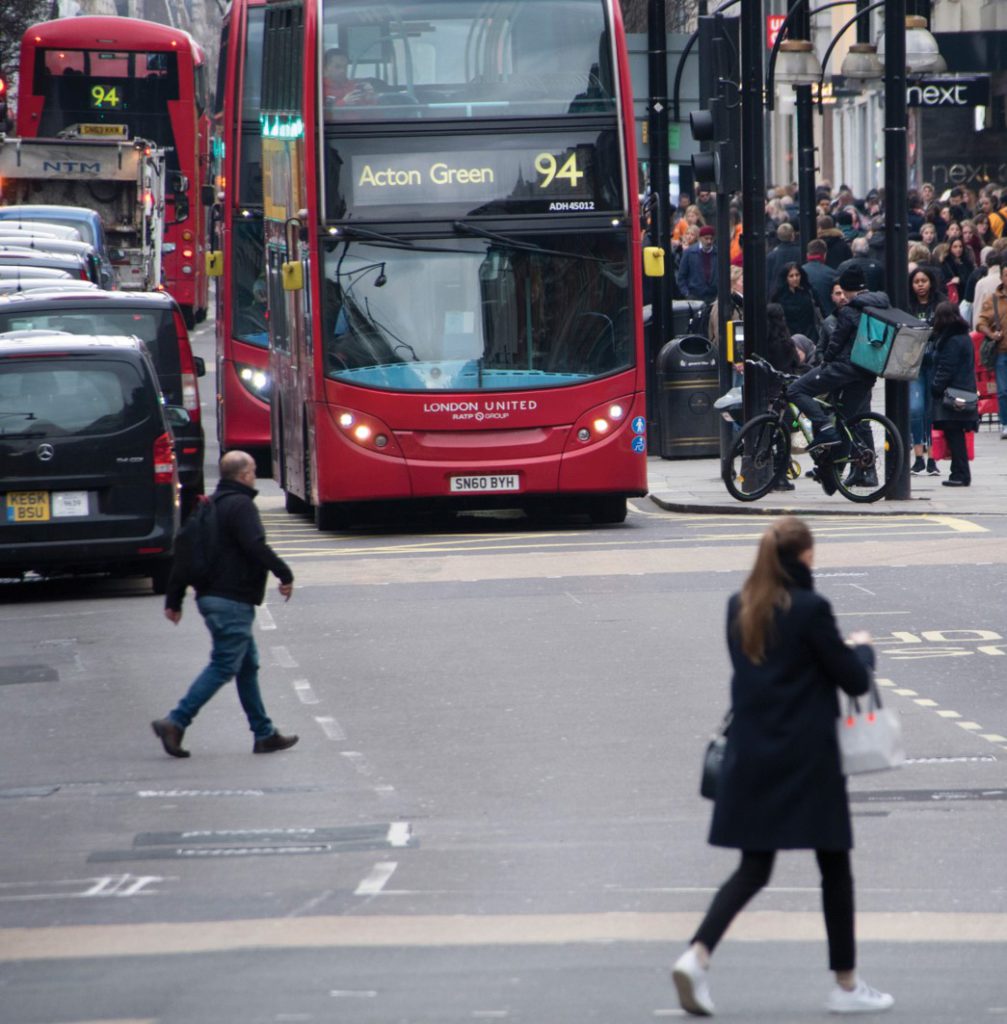City declaration "The New Paradigm for Safe City Streets" launched today
As this year’s European Mobility Week starts, the European Commission and the Global Alliance of NGOs for Road Safety co-organised a Road Safety Roundtable in Brussels this morning on 16 September. During this event, two commitments were handed over: One from the European Commission and the EU Member States, namely the target of halving the number of fatalities and serious injuries on European roads between 2020 and 2030, and one from European cities, entitled “The New Paradigm for Safe City Streets”.
The city declaration has been coordinated by Polis and EUROCITIES.
Karen Vancluysen, Polis Secretary General, says:
“Death and serious injury are not an inevitable by-product of urban mobility. Urban mobility must become both sustainable and safe. Authorities at all levels, road safety agencies and police forces must work towards the same goal. With this declaration on road safety, local and regional authorities recognise their key role in building safe systems. We hope it will inspire many more cities across Europe and beyond to not only promote walking and cycling but to also invest in making these modes safe.”
Antoinette Maas, Deputy Mayor for Mobility, "Smart City" Helmond, says:
“A safe city goes hand in hand with sustainable goals. As a green and bicycle friendly city, we always strive for more walking and cycling. Improving the safety of our streets will unlock the potential for walking, cycling, public transport and a growing number of shared micro-mobility options which helps us achieve climate and air quality objectives.”
Ingmar Streese, Permanent Secretary for Transport, Senate Department for the Environment, Transport and Climate Protection, says:
"Berlin supports the Joint Declaration of European Cities on an immediate and stronger focus on road safety. The vision zero and the principles of the Declaration correspond to the objektives and requirements for action defined in Berlin's Mobility Act. A common European understanding will help a lot of cities to find new approaches and solutions in favour of road safety."
Miguel Gaspar, Lisbon’s Deputy Mayor for Mobility and Safety, says:
"In Lisbon we want City streets to be places for life. People come first, and we must make sure that Active Mobility is safe and comfortable, and that vulnerable users are protected. That's a cornerstone of our Mobility policy."
Adelheid Byttebier, Vice-Mayor of Mobility in Shaarbeek, says:
"We are happy to sign the New Paradigm because it is the most complete overview of what we as cities need to do to ensure road safety. In Schaarbeek, for example, we're working on 'Safety leads to efficiency' by reducing the speed limit to 30km/h and modifying the outlooks of our streets so they're equally welcoming to cyclists and pedestrians."
Konstantinos Asikis, the Head of the Planning department of the Municipality of Farkadona, says:
"By supporting this declaration, we make a conscious choice to implement our safe and sustainable mobility visions as a social prosperity critical factor."
The Global Alliance will present these commitments to the Global Ministerial Conference on Road Safety in Stockholm in February 2020.
New Urban Road Safety Award
On the occasion of the roundtable, the Commission also announced an “Urban Road Safety Award” for city, to be handed out next spring. More details can be found at online soon.
About the EU commitment
The European Commission and the EU Member States committed to their target of reducing fatalities and serious injuries on the roads by 50% between 2020 and 2030. This commitment follows from the Valletta Declaration on Road Safety by EU transport ministers and was concretised in the EU Commission’s Road Safety Policy Framework 2021-2030, which also contains a list of 8 key performance indicators to monitor progress. Data collection across the EU will start in 2020.
About the Round the World Roundtables
The Global Alliance of NGOs for Road Safety organises roundtables around the world and collects road safety commitments from governments, to be presented to the 3rd Global Ministerial Conference on Road Safety, in Stockholm on 19-20 February 2020. This conference will discuss global efforts to drastically reduce the number of severe road crashes, causing 1.35 million deaths worldwide every year. A pivotal question to be discussed will be global target setting for the period 2020-2030, given that the current target (50% reduction of fatalities by 2020) is likely to be missed.
